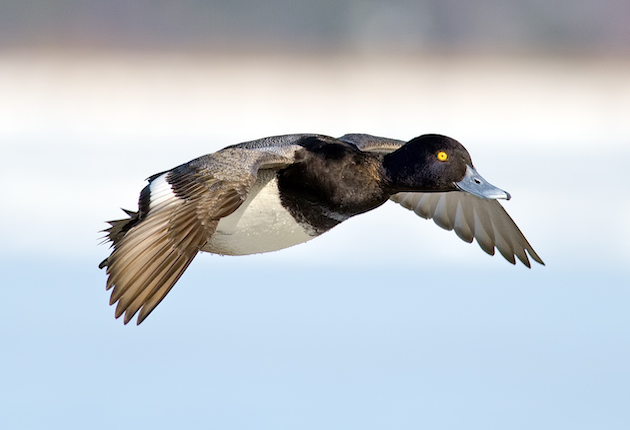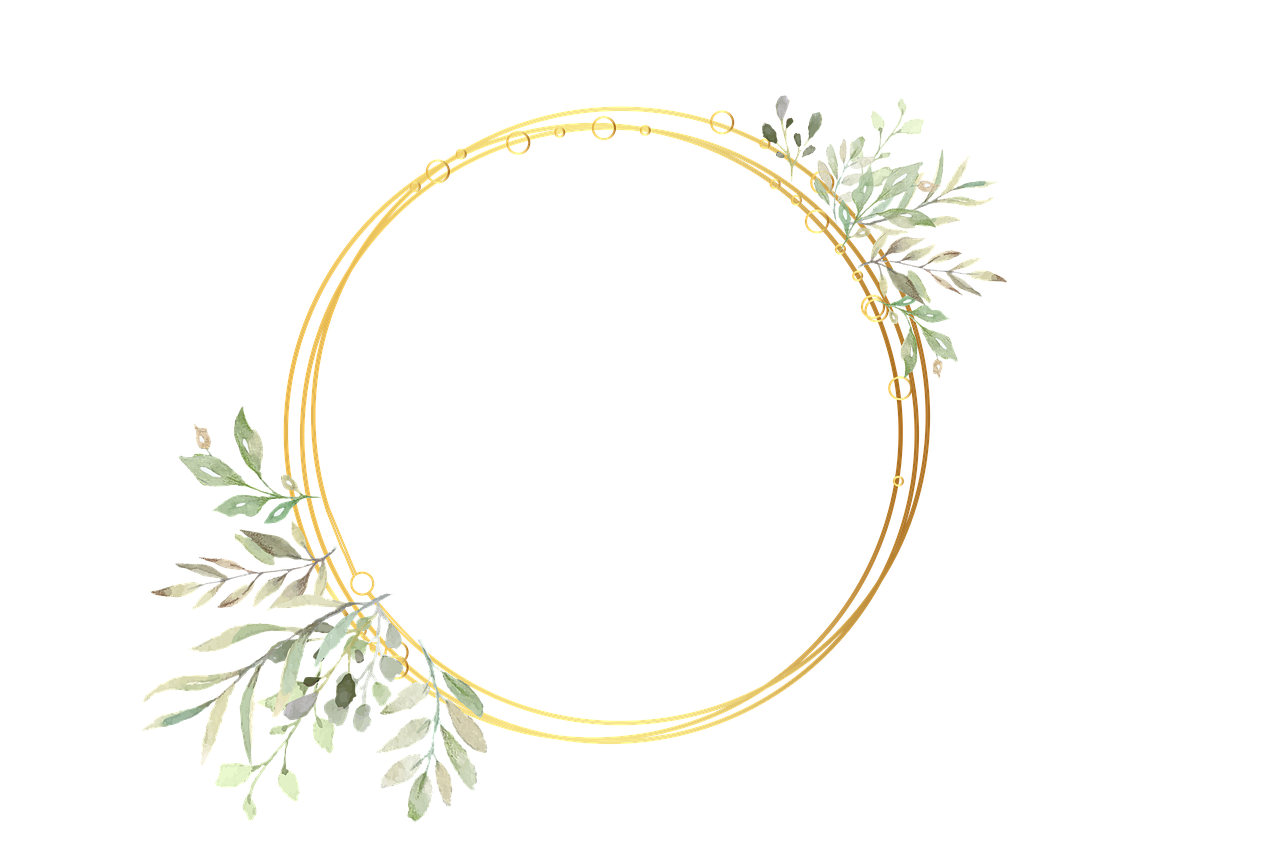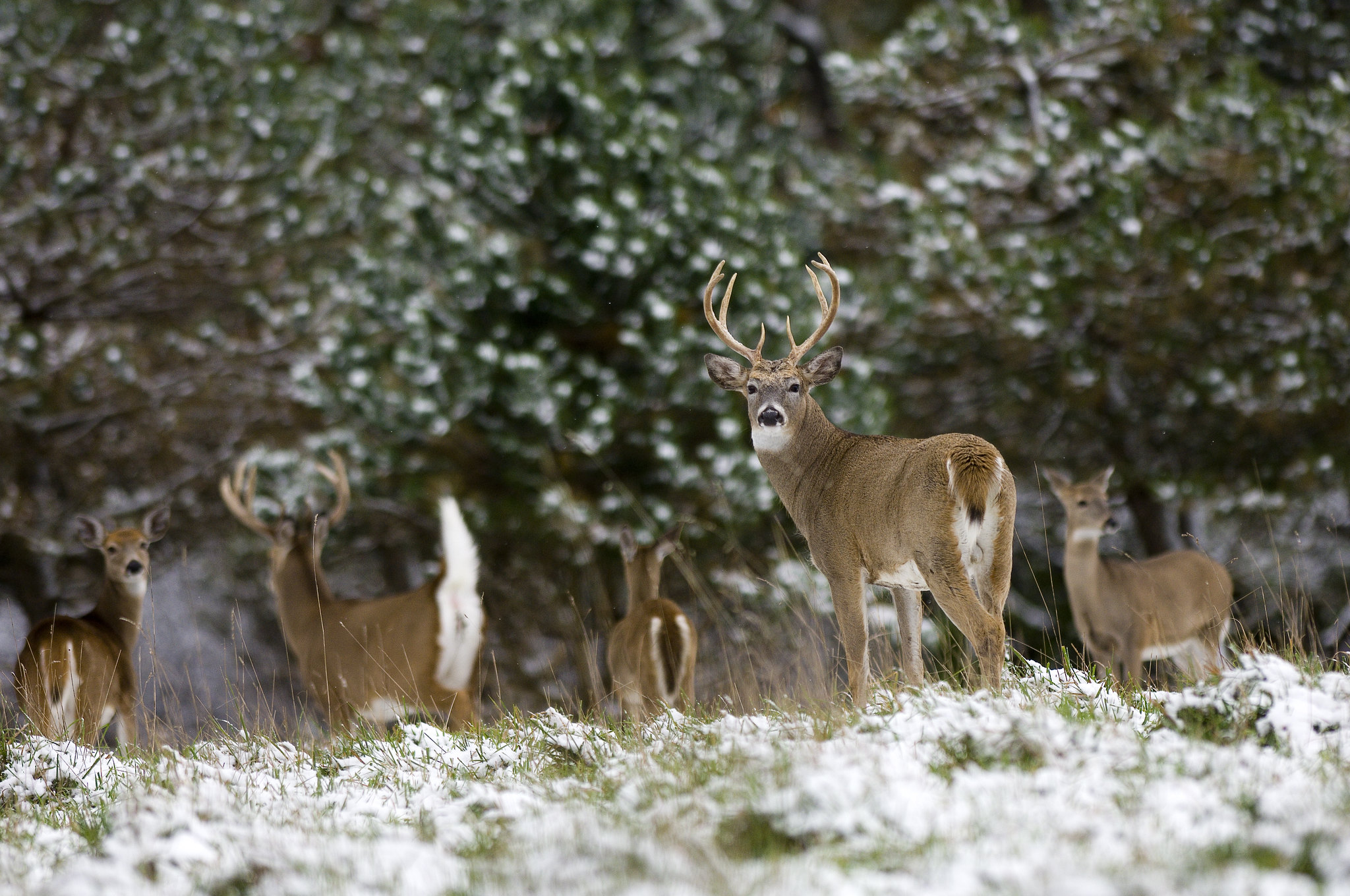I know where three lakes of North Wisconsin blue challenge the monotonous march of jack-pine and scrub-oak over the left-hand corner of the state. The lakes of which I speak are a triumvirate among thousands of similar bodies whose shores have been inhospitable to the settler and benevolent to the angler and the hunter. These lakes seem to have several names, but most of the people thereabout call them the Richards Lakes. Less than 200 yards separates one from the other. They stretch east and west.
The one farthest east is the largest, nearly a mile long and half as wide. The one farthest west is not quite so large. The one in the center of the chain is the smallest but deepest. From its northern shore projects a stocky headland that narrows to a slim point, clad with trees to within 50 feet of the tip. One dazzling, warm October day I shot ducks on this point. In the center of four trees, grouped in a perfect square, I sat on a shell-box and enjoyed the easiest duck shooting I ever expect to encounter outside of a rich man’s club.
At noon of that memorable day, Joe dropped into the headquarters of the Old Duck Hunters’ Association. Out-of-doors the bright October sun flooded the flaming oaks and pines with the warmth of August. The lake, on the shores of which headquarters are established, seemed drinking in the unseasonal heat wave, as though to fortify itself against approaching winter. Only that morning we had hunted, with indifferent shooting, on a nearby slough. The President of the Association was taking 40 winks to make up.
“Let’s get going to Richards Lakes,” cried Joe of the stentorian voice and boundless energy.
“Not today, thanks,” was the President’s dictum.
“Weather’s a bit too fine, isn’t it, Joe?” I asked, wiping my brow. I was warm, and the fever of Indian summer made me so lazy that I had not taken the trouble to doff heavy garments.
“Told you yesterday we were going to Richards Lakes,” said Joe. “There is always good duck shooting over there. Got the boat on the trailer, decoys in the car, and we’re all set.”
“Mr. President,” I interposed, “it is apparent that the Honorable Joe took our promises of yesterday in good faith. If it is in order, I suggest that we accompany him to the fabled lakes and find out if all he says is true. Take your casting rod along and see if there are any bass over there.”
The President is a lover of variety. Duck hunting he adores, and bass fishing he worships. Surfeited with the former, my appeal found its mark.
“Overruled,” he moaned, and while he gloated over the joys of fishing in a new and comparatively unfished lake I pondered on the useful purpose the rod might serve in the retrieving of a dead duck, caught offshore in the weeds.
Ten miles of journeying over a winding, up-and-down, sand trail brought us to the westernmost lake. It gleamed brightly through the trees, but there was not a duck in sight on its surface. On to the second we drove.
“The farthest one is usually the best,” opined Joe.
“I’ll take this one,” I volunteered, “if no one else wants it.”
The personnel of the Association agreed. I was transported across the lake and given half the decoys, then Joe and the President departed with the boat for the conquest of the farthest lake. My blind, I discovered, had been thoughtfully made for me some 15 years before, when four spruce cones fell so as to form the corners of a tree square six feet on all sides. I heard the jolting car and trailer disappear on the road to the other lake, and sat on the shore for a moment’s contemplation of autumn’s glory.
The decoys bobbed slightly in the wind, which was blowing directly off the point. The sun glanced ridiculously off their painted forms. They seemed utterly impotent to attract ducks. Indeed, there was not a duck in sight anywhere, on the lake or in the air. I made a pillow of my heavy blanket coat and lay on my back, staring upward at a peaceful blue sky that seemed never to have looked down upon the flight of ducks. On such a day, I speculated, ducks would likely be resting undisturbed in the hundreds of inaccessible potholes that cover the region.
I was jolted from my daydreams by a tremendous sound like thin silk being torn—that billowing whisper which filled the air when ducks are flying en masse. It seemed incredible, but when I raised my head I was staggered at what I saw. A thousand—maybe 2,000—ducks were in the air. I knew they must have come from the lake to the east of me and had doubtless been frightened into flight at the approach of the other two hunters.
They came up from behind the trees on the high ridge that separates the two lakes. Obviously my lake was their chosen objective, and there was I, lying like a ninny behind the decoys, daydreaming, my sheathed double gun and shell-box reposing in the tree blind 50 feet in back of me!
I remained motionless as the main flight passed over in fairly close range. Then, not 30 yards from me, a flock of 40 or 50 plowed into the water. There was nothing else for me to do but dig out for the blind, and as I did so the visitors roared away to join the throng of ever-increasing friends that had swept to a landing at the upper end of the lake.
With trembling fingers I assembled the gun and fumbled in the shell-box. Thunderation! There was only a part of a box of shells—22 by actual count. I felt like walking down the shore and making a general announcement to the ducks that they might all go now, because I was going home to soak my head in a water barrel. How many times had I toted that preposterous shell-box in rain and shine, filled to the muzzle with no less than eight boxes of shells, only to find opportunity for one or two shots?
Ducks were scooting across my point like dandelion bloom before the wind. At the far end of my lake their brethren and sisters were per-r-rutting and quacking in bluebill and mallard sociability. Later I learned that there was only one flock of mallards among the hundreds of black-hooded bluebills, and they tarried not long. I deliberately let flock after flock dust across the point while I thought out a plan of action.
With 22 shells, it would take some powerful lucky shooting to bag the limit of 15 ducks; so I decided to take only the easy ones. The wind was in my favor. If they decoyed as the others had, there was one—and only one—opening in the blind from which to shoot. It was a perfect port-hole frame with spruce boughs. A shot from any other angle, without considerable rearranging of my blind, or the building of an entirely new one, was impossible, and blind building was not in my thoughts.
I would have to be careful, but maybe I could make my 22 shells do the trick. My principal fear in not doing proper honor to my membership in the Old Duck Hunters’ Association lay in the tongue-lashing the President would administer when he learned of my plight. He had often cautioned me to be ready for any emergency; in fact, it was at his urging that I had often lugged pounds and pounds of shells to remote sloughs and duck passes without any immediate recompense.
Off to my left, on the other lake, I heard the first boom of guns. My companions were all set in a blind somewhere, I conjectured, and would likely drive more ducks to me. Sure enough! A flock of butterballs topped the ridge between the two lakes and slanted straight for my decoys. It was a murderously easy shot, and the two birds dropped stone-dead. Two ducks and 20 shells left. I had to get 13 more with 20 shells! For me, that is impossible under normal conditions. There must be no silly shots at high or fast-flying ducks, lest I wound one, and then, liver-heart that I am, I would probably waste four or five shells putting it out of misery. No, I decided, I must take only the easy ones, and take them permanently.
The offshore wind quickly wafted my dead pair out into the lake. They would be picked up later on the opposite shore, exactly at the place where the returning lodge members, now at lake number three, would park the car preparatory to coming after me in the boat.
Suddenly there were eight mallards, high overhead, coming straight across the point. Evidently they had parted company with the sputtering bluebills. It was a shot I could not resist. I leaped from the blind and shot, from a miserable stance, at the first of the octet. The third came down with a sensational somersaulting and was soon bobbing with the wind toward the opposite shore. I occupied the interim before the next flock came, with mathematics. Nineteen shells left and three ducks dead. Not bad. If my arithmetic held out, I might make a score.
My eye accidentally caught a movement on the water through the hindering spruce growth. I adjusted my vision to a new and larger opening, and was astounded to find every one of my bluebills swimming eagerly toward me, the front-rank leaders not 100 yards distant!
They came right along, and I decided that such foolery had to stop. With my gun to my shoulder, I shouted at them and the afternoon call broke up in wild confusion. I fired both barrels and even tried to reload for a second chance before looking around for the dead and wounded. Search as I would, I could find nary a feather on the water! The legion of ducks had come and gone, offering me the kind of a shot any greenhorn could have scored on. My shame was numbing. A handful of incomers flirted low over the decoys an instant later, and I was so flustered that I made two perfect misses.
Ordinarily duck hunters with any pride whatsoever draw the well-known veil over such happenings. It is much easier to forget and ask forgiveness of oneself, before one develops an inferiority complex and loses all confidence. Such experiences prove strongly the influence of mental attitude in duck shooting. One miss leads to another, and that is largely due to the inability of the hunter to readjust himself mentally to his usual form.
Fifteen shells left and 12 ducks to go. Things looked bad. The bogey of wounded ducks was to be considered. I waste no time in dispatching them. I have even carried heavy shot in my shell-box, for their long range, to reach the wounded ones that drop quite a ways out. Until you have tried it you have no idea of the number of shells that can be wasted in trying to stop a wounded duck.
From the other lake I heard intermittent shooting and concluded that the bass had been forgotten. The shots were usually followed by a movement of ducks. We were driving the birds back and forth between us, although some of them darted westward over the hill and sought refuge in lake number one, where there was no one to disturb them. My three dead ducks were, by this time, out of sight in the wavelets, on the other side of the lake.
The next opportunity took the form of a squadron of bluebills, coming dead on. The white markings on the heads of the females were plainly discernible when I fired. Two dropped with the first shot. They flared to the right, and the second shot, the only genuine one I made that day, caught the last duck far out. To make it I once more scrambled out of the tree fortress and fired. It restored my confidence to see that duck take a hard, slanting fall to the water, completely dead. But one of the other pair was wobbling his head! I took no chances with him, but advanced to the water’s edge and executed him instantly. Three ducks with three shots—I was keeping up fairly well.
Nine ducks to go and 12 shells left. What wouldn’t I have given for a case of shells, so that I might accept this shooting in true sporting fashion, taking them as they came?
Most of my attention was occupied with watching through the natural porthole of the blind, so that I was taken completely by surprise when another flock of birds swam into the decoys, this time from the left. I was about to raise them and try a shot when I caught another shadowy movement through the spruce. Not 15 feet from me, close inshore, swam 30 or 40 bluebills and ringnecks, headed for the decoys! And swimming!
I wondered if these ducks had suddenly gone crazy. Perhaps they had eaten of some lotus-like weed from the depths of the Richards Lakes. Or—and this is more likely—they were newcomers in the country, fresh from some wild haunt to the north where the destroying hand of man was unknown. I let them swim away from me, toward the decoys, and planned a campaign.
My other shots on departing ducks, I figured, must have been failures because of undershooting. This time I struggled from the trees as quickly as the encumbering branches would permit and caught the rising ducks from a better position. To stop these ducks one must swing and raise the gun simultaneously. On teal and mallards rising suddenly, it is mostly a vertical movement of the gun barrel, but the bluebills and many other varieties possess no power of leaping straight into the air. Their takeoff is more like that of an airplane. They have yet to master the trick of going straight—or nearly straight—up in the air.
The first shot missed. The second found a fair mark, and the duck, which I judged to be a ringneck, dropped dead.
Eight ducks to go and ten shells left. The ducks were gaining on me! I must do some more merciless shooting through the porthole at incomers with outstretched wings, ready to alight. The next chance materialized in that way, and two remained behind out of a flock of a dozen or more. Six ducks to go and eight shells left. All this time ducks were coursing across my point in the blazing sun from every angle. A persistent bombardment echoed from the other lake.
To have shot on this point from a blind of conventional build, with an unlimited supply of shells, would have been nothing short of duck murder. There would have been many misses, but who cares? It would have afforded an afternoon’s lesson in point shooting from every angle that I have never had and, what’s more, that I need badly. Another straight-out chance at incomers ready to light netted three, all dead with only two shots. I waited for those three with malice aforethought, and they died suddenly and satisfactorily. That left three ducks still to be downed and six shells with which to do it.
A potshot offered itself when four foolishly swam in, but I passed it up. Not only is it a bit rough to take them in this manner, but they are, be assured, hard to kill on the water. Many a greedy hunter can testify to that. I let them swim off. When a small flock flew in shortly after, to leave two of their number dead behind, the swimmers arose fussily 50 yards away and departed.
Only one more duck to go now and four loaded shells! I was doing famously. Surely I could afford to gamble with those four shells. I abandoned the tormenting blind and stood motionless on the end of the point. My presence did not seem to frighten the moving flocks. A large bunch from the other lake came over high, and two of the precious shells were gone, to no purpose. This flock was followed by a single, coming high from the left. The first one missed, the second sent him plunging down, and my shooting was over.
I sat on the point as motionless as I could and witnessed one of the most amazing duck shows I have ever heard of in this part of the country. There were hundreds in the air from time to time, and two large bunches swam into the decoys, oblivious of my presence in the open. They seemed to realize that all was not well, for they approached slowly and tarried but a short time before paddling away. When I retreated to the blind later and was completely hidden, several small bunches swam into the decoys, looked them over, and departed hastily.
Then the car, with jolting trailer, creaked along the sand trail across the lake. It was growing dim by that time, and soon I made out Joe’s lights through the trees. Laughter drifted across the water to me as they unloaded the boat. It sounded as though they were feeling sorry for me, left to my own devices on that point, while they had chosen the other lake where the shooting was supposed to be better. The President came over for me in the boat.
“Gee, I’m sorry you weren’t with us,” he began. “All the ducks in upper Wisconsin had a grand reunion right under our noses.”
“Don’t feel sorry for me, your honor,” I replied. “My fifteen ducks are over against the shore, and if I were any kind of a sport I would have killed them all with a slingshot!”
 When it comes to actually shooting ducks and geese over water, the action is on the small places – the inland lakes, the ponds and potholes, the floodings and creeks and backwaters. Day in and day out, that’s where the ducks are, and that’s where Chris Smith takes you. Each of these places requires a separate technique, alternate decoys spreads and calling concepts, and different gear to use. He tells you how to approach each type of hunting for the weather and conditions. He knows when and when not to call. He describes the skills a good waterfowl dog needs to know for each place, things he’s taught his succession of Labrador retrievers over the years. Shop Now
When it comes to actually shooting ducks and geese over water, the action is on the small places – the inland lakes, the ponds and potholes, the floodings and creeks and backwaters. Day in and day out, that’s where the ducks are, and that’s where Chris Smith takes you. Each of these places requires a separate technique, alternate decoys spreads and calling concepts, and different gear to use. He tells you how to approach each type of hunting for the weather and conditions. He knows when and when not to call. He describes the skills a good waterfowl dog needs to know for each place, things he’s taught his succession of Labrador retrievers over the years. Shop Now




